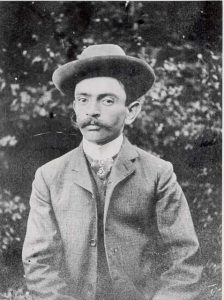Govorite slovensko?*
19.10.2023 |
Slovenian language
Slovenian is spoken by approximately 2.5 million people. About 1.8 million of them live in Slovenia, while the rest are mainly in Italy, Austria, Hungary, Croatia and the United States.
If we go back to the Middle Ages, Slovenian was spoken mostly by peasants, although it was also used in the towns. The nobility, however, mostly spoke German. Standard Slovene developed in the second half of the sixteenth century. It was helped by the writing of Slovenian Lutheran authors prominent in the Protestant Reformation; these include Primož Trubar, whose name you might recognise from Ljubljana’s Trubarjeva street. In the first half of the 19th century, many writers started borrowing Serbo-Croatian words. However, this trend was turned on its head in the second half of that century as writers such as Ivan Cankar (after whom the capital’s Cankarjev dom cultural and conference centre is named) tried to make Slovenian purer with fewer borrowed words.
When Slovenia was one of the Yugoslav republics, Slovenian was used in almost all aspects of public life. The exception was the armed forces which used exclusively Serbo-Croatian, even within Slovenia.

Slovenian writer and poet Ivan Cankar
Today, Slovenian is one of the 24 official languages of the European Union. You can read Wikipedia in Slovenian and you can have Microsoft Word check your Slovenian spelling and grammar. One Slovenian MEP is currently campaigning to introduce measures that will compel streaming platforms such as Netflix offer Slovenian as a language option for its output. Irena Joveva says that it is discriminatory for platforms not to provide this option when offering services on the Slovenian market.
Dialects
An old Slovenian proverb claims that “every village has its own voice”. The exact number of dialects varies with some suggesting that there are as many as 50. Fortunately for learners, standard Slovenian is what is taught in classes, textbooks and apps. One of the most distinctive dialects is Prekmurje Slovenian. This is spoken in the far east of Slovenia. Slovenians from other parts of the country often claim not to understand a word of Prekmurje Slovenian. If you go to live there, you will have fun learning the words peculiar to that area!
The good news and the bad news
One of the things that strikes terror into the hearts of learners of Slovenian is the grammar. In Slovenian, there are three genders, six cases and three numbers – single, dual and plural, Slovenian being one of only a handful of languages that has retained the dual form. While some people will want to perfect the grammar, you manage in everyday life even if you make grammatical mistakes. Slovenians are usually very forgiving and often point out that lots of Slovenians make simple grammatical mistakes too.
On the bright side, however, while Slovenian with its less familiar letters such as č, ž and š, may look daunting, once you’ve learned how to pronounce the letters of the Slovenian alphabet, you should be able to pronounce most words.
Why learn Slovenian?
Apart from being good manners to learn at least some words and expressions when you move to or visit a foreign country, learning Slovenian will help you settle into life In Slovenia. It makes life easier on a practical level (understanding road signs, information in shops and public buildings, doing business at the bank, contacting tradespeople, etc.). And it could open doors for work and business. It will help you understand the lyrics of the most popular songs, allow you to chat with friends and colleagues about last night’s TV, and even to curse the referee when you go to watch a football match or basketball game – “Tristo kosmatih medvedov!!”*

*Do you speak Slovenian?
**Three hundred hairy bears!!
Where to learn Slovenian?
People coming to live in Slovenia from 3rd countries (those from outside the EU) may qualify for free Slovenian lessons. Otherwise, there are now lots of options available for learning Slovenian. These range from 1-to-1 intensive training to group classes held online or in person. Some teachers follow a coursebook, while others can tailor courses to suit your individual needs (for example, if you’re going to be using Slovenian at work).
Have you learnt or are you learning Slovenian? What’s your experience? Do you have any tips?











